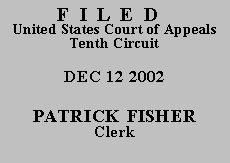

| DELMAN WESLEY BALL, |
|
On July 24, 2000, while serving his sentence at a federal prison, Mr. Ball was charged in an incident report with assault, possession of anything not authorized, and insolence. The incident report stated that Mr. Ball became hostile, swore at and pushed a correctional officer into a wall upon being confronted for possessing an unauthorized radio. Although at the disciplinary hearing Mr. Ball denied intentionally pushing the officer, he was found guilty of all three charges and received disciplinary confinement.
Thereafter, the USPC ordered a rescission hearing to determine if Mr. Ball's parole date should be deferred based on the violations. The hearing examiner determined that in light of the violations and Mr. Ball's poor record of behavior, the violative behavior should be viewed as new criminal behavior and rated as category three conduct under the applicable guidelines. Applying those guidelines, the hearing examiner recommended Mr. Ball serve an additional 16 months, thereby delaying his presumptive parole date to September 15, 2002. The USPC agreed with the recommendation and adopted the new presumptive parole date. Mr. Ball appealed, and the National Appeals Board affirmed.
Mr. Ball then challenged the USPC decision establishing his presumptive parole date at September 15, 2002 by seeking a writ of habeas corpus in federal court pursuant to 28 U.S.C. § 2241. His three related grounds for relief are: (1) the USPC erroneously determined that he had engaged in new criminal conduct, and therefore applied the wrong guidelines; (2) the USPC abused its discretion by making an independent determination, without supporting regulations, that the conduct described in the incident report could be classified as new criminal conduct; and (3) he was denied due process when the USPC considered the institutional disciplinary report without a recommendation from the disciplinary hearing officer. ROA Doc. 19 at 3, 8, 18. The district court denied Mr. Ball's habeas petition and adopted the report and recommendation of the magistrate judge. Mr. Ball now seeks to appeal that decision and has moved to proceed in forma pauperis.
We review the district court's decision to deny habeas relief de novo. Hunnicutt v. Hawk, 229 F.3d 997, 1000 (10th Cir. 2000). However, we will not disturb a decision by the USPC "unless there is a clear showing of arbitrary and capricious action or an abuse of discretion." Sotelo v. Hadden, 721 F.2d 700, 702 (10th Cir. 1983). "The inquiry is not whether the Commission's decision is supported by the preponderance of the evidence, or even by substantial evidence; the inquiry is only whether there is a rational basis in the record for the Commission's conclusions embodied in its statement of reasons." Misasi v. United States Parole Comm'n, 835 F.2d 754, 758 (10th Cir. 1987). We do not reweigh evidence, make credibility determinations, or substitute our judgment for the Commission's. Fiumara v. O'Brien, 889 F.2d 254, 257 (10th Cir. 1989). Because Mr. Ball is representing himself on appeal, his pleadings will be liberally construed. Haines v. Kerner, 404 U.S. 519, 520 (1972).
After carefully reviewing Mr. Ball's arguments, the magistrate judge's report and recommendation, the district court's order, and the entire record, we conclude that even construed liberally, Mr. Ball's arguments before us substantially mirror those advanced and ruled on below. See Aplt. Br. at 14. We are satisfied that the district court, in adopting the magistrate judge's report and recommendation, applied the proper standard of review and did not err in concluding that the USPC's actions were neither arbitrary and capricious nor an abuse of discretion. We agree with the district court that the USPC's decision was supported by a rational basis in the record and the applicable regulations. Furthermore, we conclude that Mr. Ball was not denied due process in the proceedings before the USPC. We decline to consider Mr. Ball's equal protection claim as it was raised for the first time on appeal. See McDonald v. Kinder-Morgan Inc., 287 F.3d 992, 999 (10th Cir. 2002).
We AFFIRM the judgment of the district court for substantially the same reasons contained in the magistrate judge's report and recommendation, ROA Doc. 24, and GRANT leave to proceed in forma pauperis.
Entered for the Court
Paul J. Kelly, Jr.
Circuit Judge
*. This order and judgment is not binding precedent, except under the doctrines of law of the case, res judicata, and collateral estoppel. This court generally disfavors the citation of orders and judgments; nevertheless, an order and judgment may be cited under the terms and conditions of 10th Cir. R. 36.3.
**. After examining the briefs and the appellate record, this three-judge panel has determined unanimously that oral argument would not be of material assistance in the determination of this appeal. See Fed. R. App. P. 34(a); 10th Cir. R. 34.1(G). The case is therefore ordered submitted without oral argument.